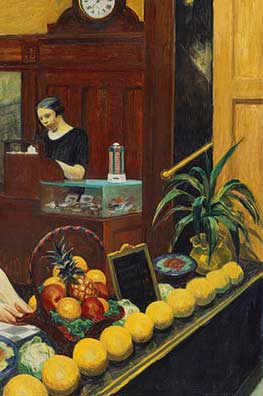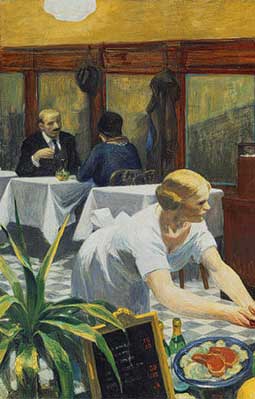Everybody has strange feelings in their early twenties. It’s a time in which you really don’t know a damn thing and, in trying to figure out who you are, you end up wandering down many solipsistic avenues, thinking that you’re sure one thing is going to work out and not knowing that something entirely unexpected will find you. Confused by these feelings, you think that other people (a loved one, for example) will somehow help you find your way. But the answer lies in being true to yourself so that you can embrace others. While moving this weekend, I uncovered a number of notebooks in which I had penned all sorts of naive feelings. I was 23.
February 8, 1998 — 2:36 PM
Again my practice of purchasing a new notebook with the optimistic plan of filling it up in its entirety has been carried out. I have little doubt that this won’t be accomplished. But who are we without dreams?
There’s not a lot on my mind these days but there are a whole bunch of minor tedious things there to get my goat.
1998 so far has proven to be a creative dearth for me. There seems no motivation to write and what I do churn out are bad imitations of Jim Thompson novels as well as a certain obsession with sex.
This is due to several things that my obstinacy can’t seem to get around.
1. Sexual frustration — The lack of a woman, loved one or casual tryst for almost two years.
2. My trapped existence — The stability of a job seems to have taken most of the spark out of me.
3. Servant of Society — Although I haven’t stared at it for some time, the burden of reshooting all remaining material needs to happen. Unfortunately, El Nino seems to have concluded otherwise, forcing me to postpone the reshoots to March, weather permitting.
4. My inability to live/my obsession with books and knowledge — I need to take O. Henry’s advice and meet more people, experience other existences beyond the Sunset. While I like my current circle of friends, I really need to meet more people. Yet something is stopping me. Some irrational fear of getting hurt or screwed over prevents the extrovert from appearing as often as it should
I’ve thought about moving to L.A. simply because the creative competition will get me working again. In addition, the fact that I will move to a populated area knowing nobody will force the extrovert to come out, simply as a means of survival.
I feel very ignorant in a lot of areas and I’ve been checking out a lot of non-fiction from the library. I know so little about history and science — more so than the average person but not enough to satisfy myself.
Perhaps I am my own worst enemy. The part of me that is a perfectionist, the part of me that wants to survive on my own terms — these aspects of myself both help and hinder me. Yet I don’t know whow I can work with them and around them to accomplish goals.
And speaking of goals, what exactly is my plan? I’m sort of bedazzled by the fat that I’m actually making some decent money and able to go out spending outrageous money on drinks every Friday night.
But, as to the goals that brought me to San Francisco in the first place, I don’t know where the passion is anymore. All I know is that I’m 23 and that if I don’t accomplish something by the end of this year, I’ll feel like a washed-up failure. Several blocks seemed to have been put up in place last year, and I think my priorities have changed for the worst [sic] after spending the sumer trying to survive through temp work.
But leaving Servant on hold for so long also has something to do with this, in addition to my lack of a better half to put a check on my personal security and self-esteem.
Why is failure such an obsession with me? Why do I take it so personally? I bullshit around with friends telling them that I don’t care what other people think of me, but I kinda do.
But then presumably we’re all liars, twisting the absolute in our own private ays.
A cigarette outside, and then a run-in with the orchid guy I always meet on the bus. And then for no reason at all aside from the fact that all this shit is on my mind, I lay it on him. My “struggle” to do what I want.
It’s so fucking obvious, it’s lying just around the corner — if I can survive through temp work admist the upheaval of debts and other nonsense, I can write two decent screenplays and move to L.A. I can become a writer-director. In fact, I will.
The question is the method.
There’s one other variable I wanted to mention and that’s my sister. She just caught the filmmaking bug after taking the class with Brozovich. We’ve talked about the possibility of making movies together, which is indeed quite possible. But part of me is saying that I have to do this myself. I want to work with my sister but only after I’ve proven myself on my own.
Is that selfishness? I don’t know. It isn’t ego; maybe it’s some sort of odd pride I have.
I’ve concluded that Java Beach is too crowded and too noisy. A hegira to Jamming Java, I’ve concluded, is in order.
 The place pounded bad house music at deafening levels. There was very little light, save for a strip of green neon snaking around the perimeter of the bar. The waitstaff were clad in black, murky figures who sneaked up on tables like highwaymen descending upon a stagecoach. I kept feeling around for my wallet just to be sure.
The place pounded bad house music at deafening levels. There was very little light, save for a strip of green neon snaking around the perimeter of the bar. The waitstaff were clad in black, murky figures who sneaked up on tables like highwaymen descending upon a stagecoach. I kept feeling around for my wallet just to be sure.  I lost interest in the talk of a reality television show I had never watched and began observing a server who reminded me very much of one of the attorneys at the firm I was then toiling at. She had spent a good deal of time perfecting her posture, had carefully kept up her skin, and was in her early thirties. Roughly around the same age. The resemblance was so similar to me that I could imagine her replacing a tray with an attache.
I lost interest in the talk of a reality television show I had never watched and began observing a server who reminded me very much of one of the attorneys at the firm I was then toiling at. She had spent a good deal of time perfecting her posture, had carefully kept up her skin, and was in her early thirties. Roughly around the same age. The resemblance was so similar to me that I could imagine her replacing a tray with an attache.